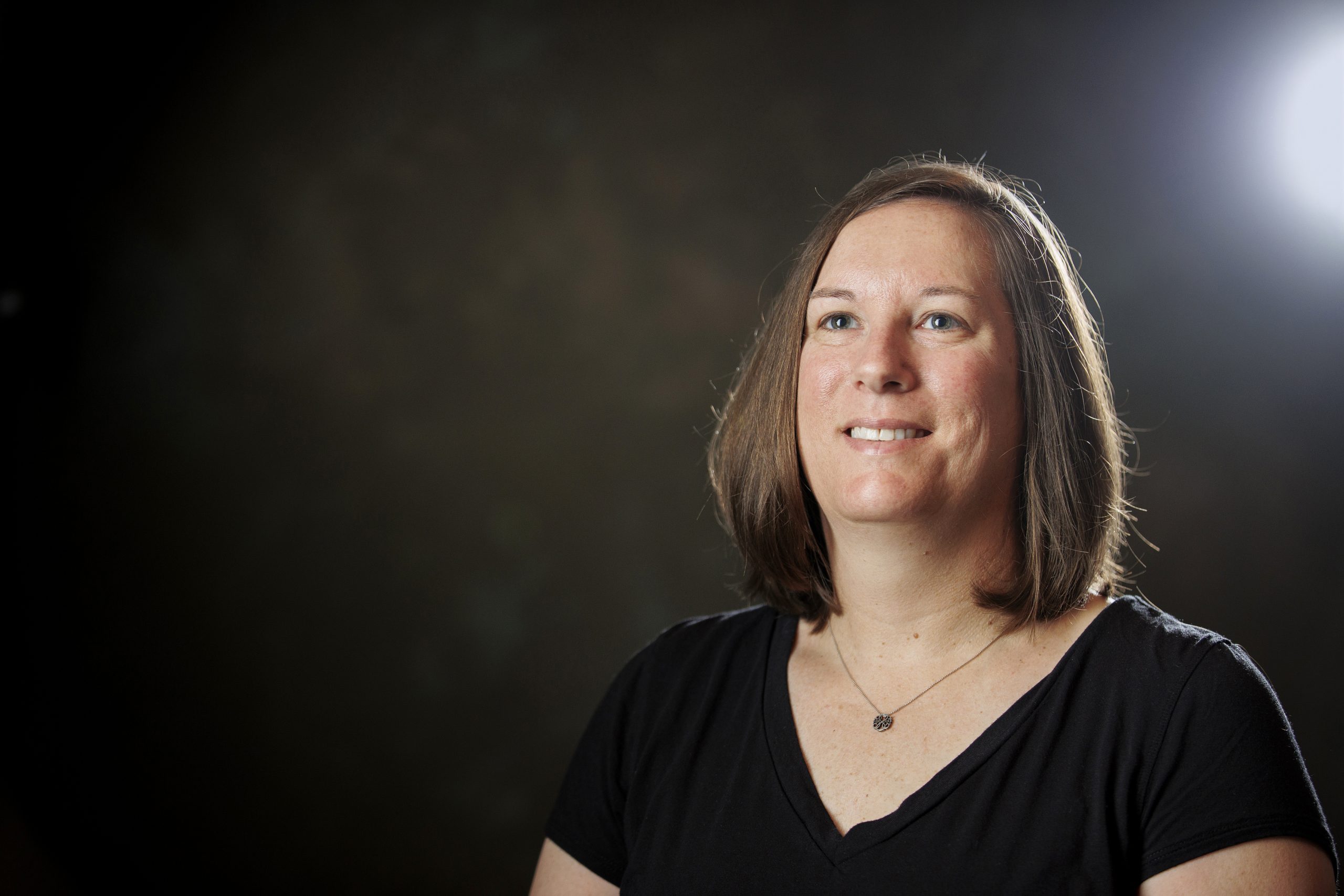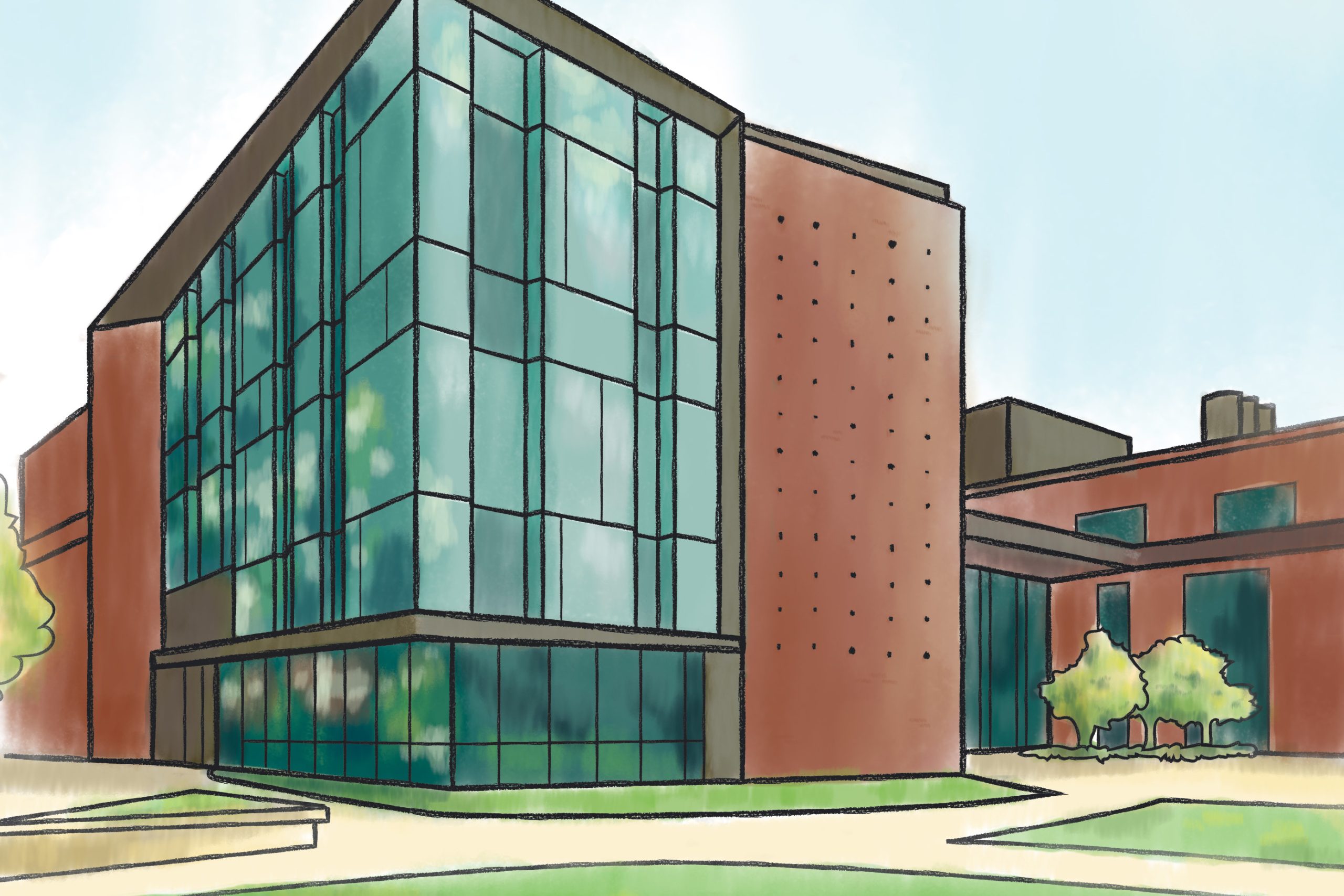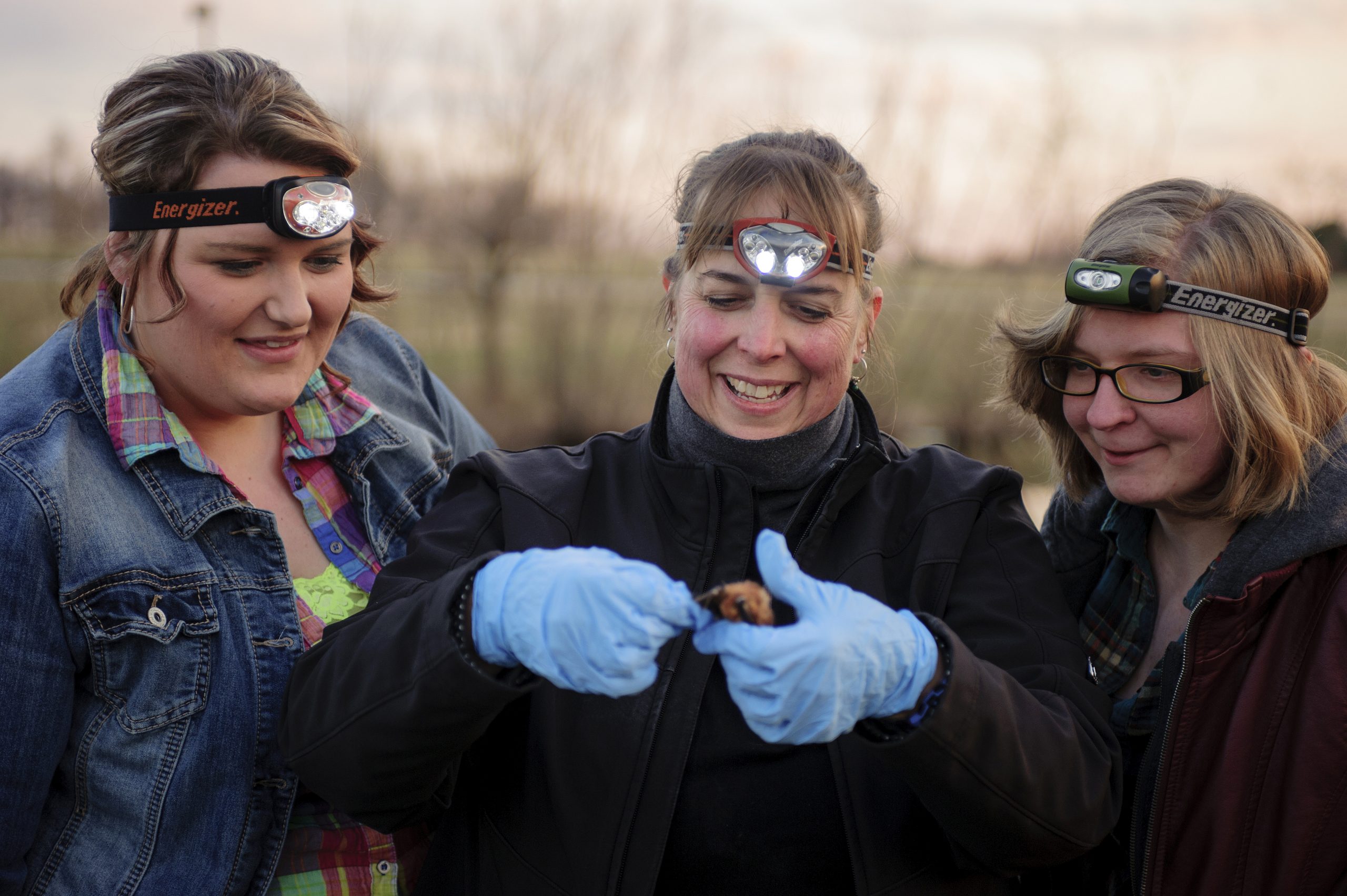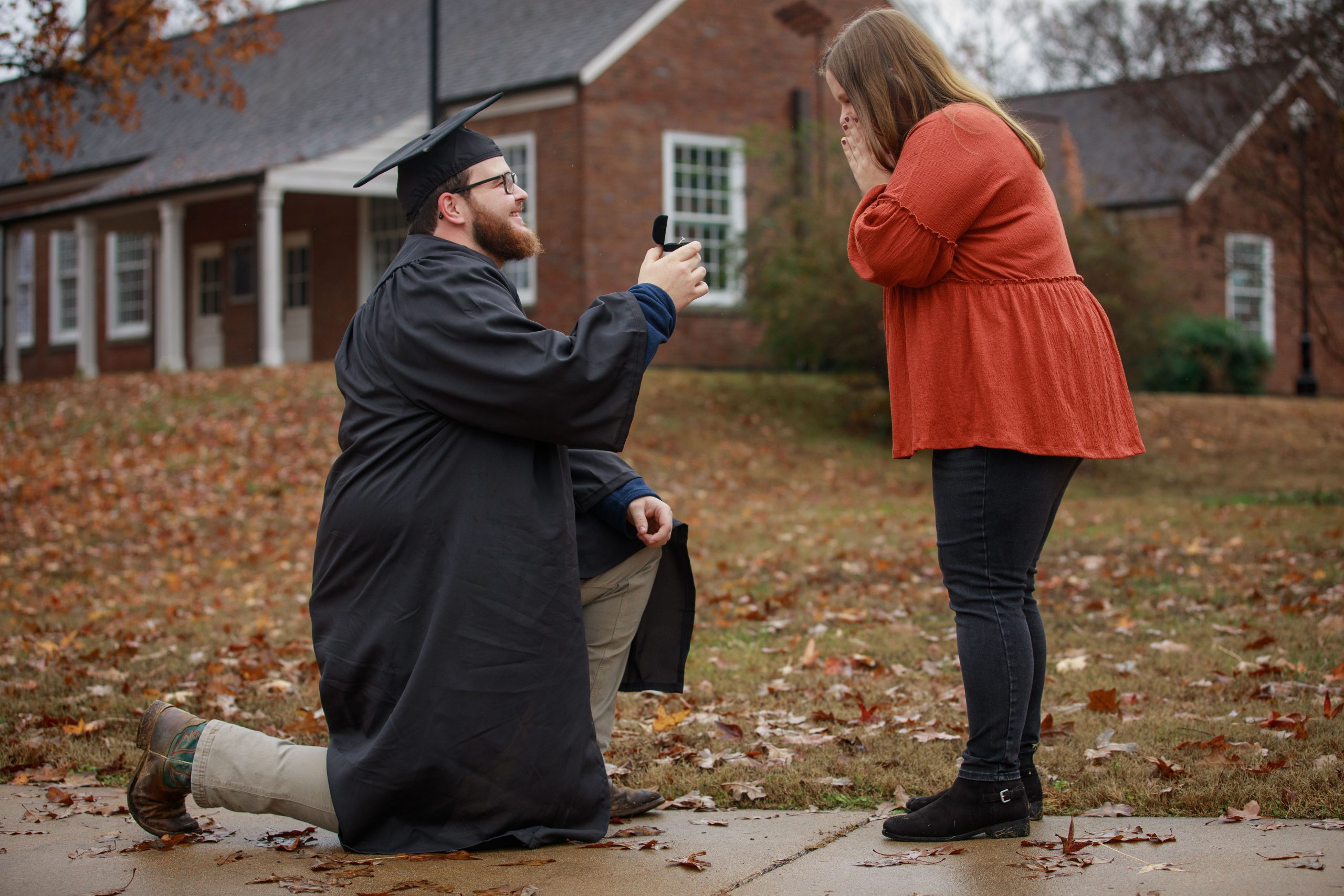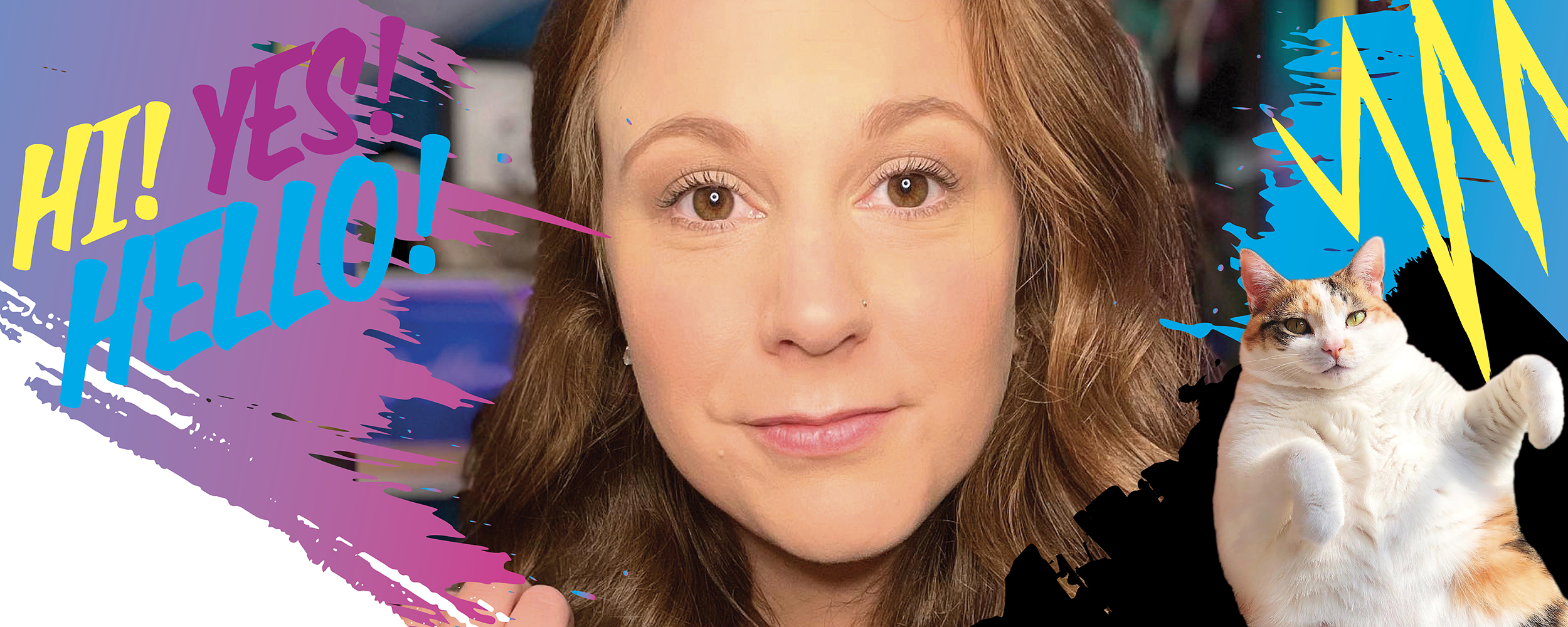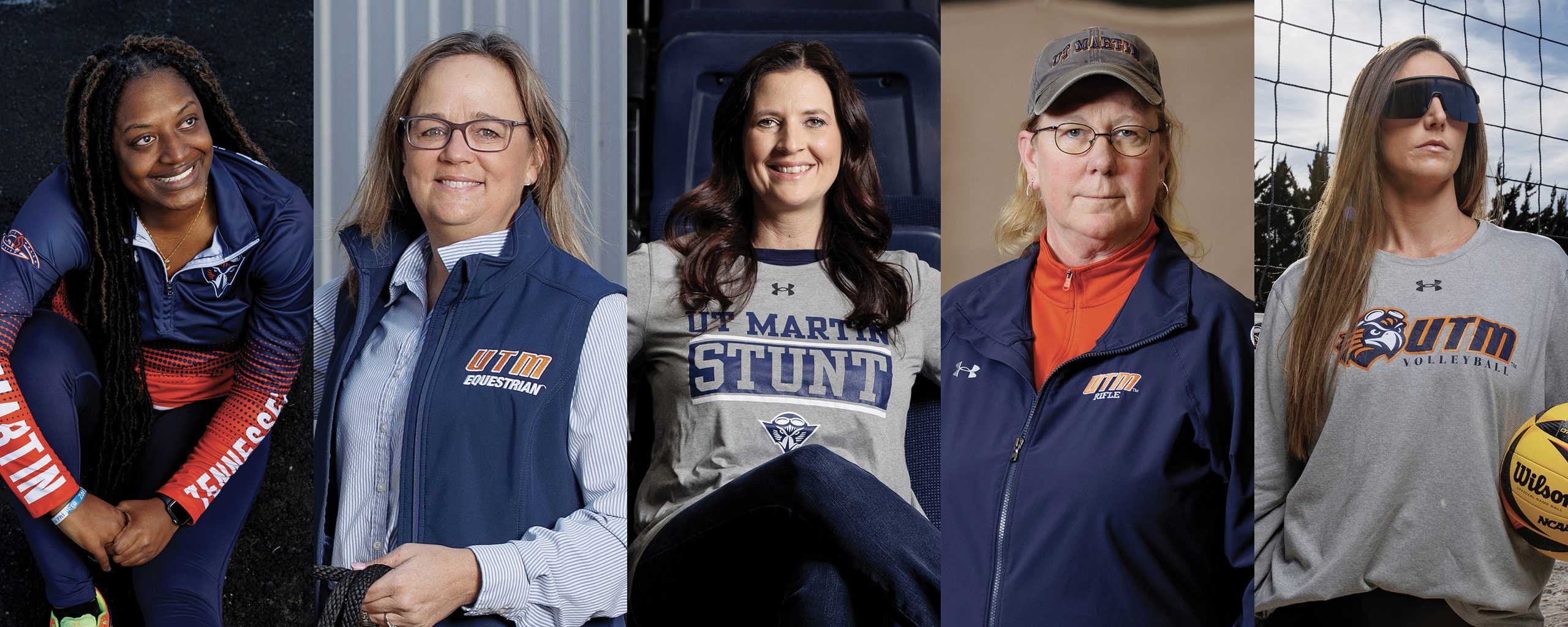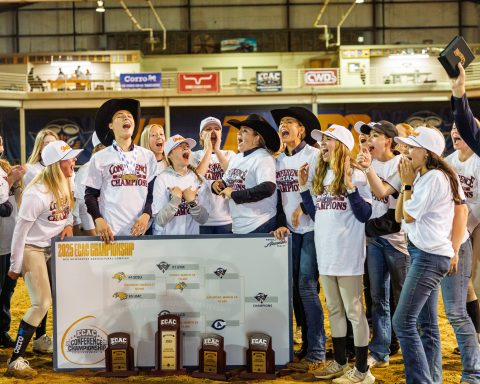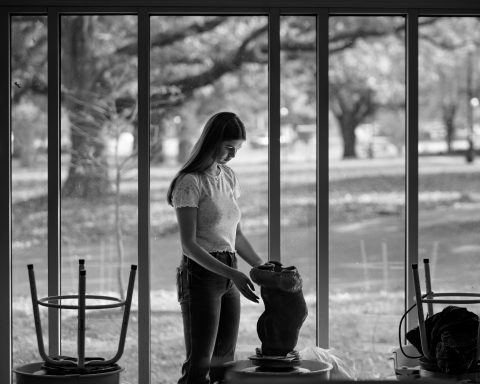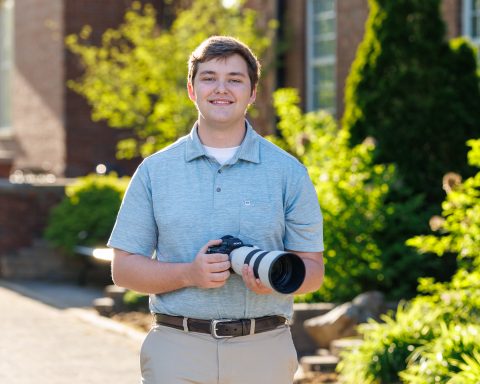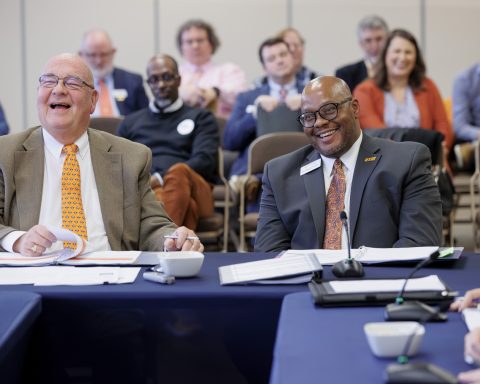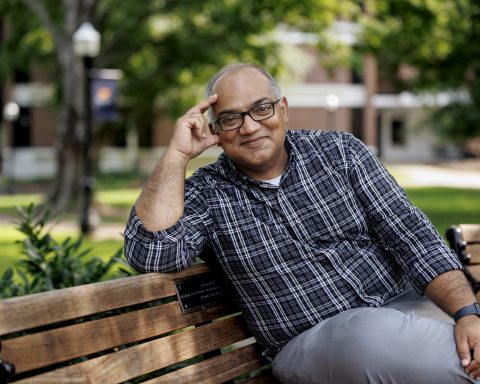UT Martin graduate gives hope to patients with neurological injuries and illness
Story by Bud Grimes | Photos by Nathan Morgan and the Shepherd Center
Beth Buttrey (UTM ’05, UTHSC ‘08) believes that proximity breeds success. Connections to family, church, friends and sports influenced her decision to attend UT Martin and later earn a doctorate degree in physical therapy from the University of Tennessee Health Science Center. Connections and preparation eventually led to a goal-fulfilling physical therapist position in the Shepherd Center Brain Injury Rehabilitation Program in Atlanta. Perseverance also contributes to her personal success, and that same perseverance helps to restore hope to patients with neurological injuries or illness at this premier hospital.
Buttrey was raised in Martin and competed in sports for her late father, Homer, and other well-known area coaches. She was also active in the Martin First United Methodist Church youth group. “I think there’s definitely value in being in a smaller community,” she said. “Where you get people who are feeding into you and they actually know you, versus being lost in the big city.” Learning to make those connections in small settings helped her later on as she made education and career moves to larger areas.
She attended Westview High School where she played basketball, soccer and softball, with the latter proving to be her favorite sport. Amy Fuller, then UT Martin head coach, expressed interest in Buttrey playing softball for her hometown university. Graduating third in her Westview class enabled her to commit to Skyhawk softball through academic scholarships as a first-year walk-on athlete. She earned some athletic scholarship money her sophomore year and completed her playing career under UT Martin Athletics Hall of Fame coach Donley Canary.

“You can’t ask for another father figure to kind of rear you through other remaining aspects of your young adult life and carry you into grad school,” she said, noting that she still stays in touch with Canary and his wife, Jenny, and other Skyhawk team members. She was a regular on the Ohio Valley Conference Commissioner’s Honor Roll and was part of a major turnaround in Skyhawk softball, falling just short of an OVC Tournament Championship and NCAA bid in 2004.
Focused on Physical Therapy
Buttrey knew early on that she wanted to pursue a health-care career, starting with the influence of her mother, Suzanne, who retired in November 2022 after a 55-year career in various non-patient care roles at West Tennessee Healthcare Volunteer Hospital in Martin. Growing up around health care, being an athlete, and focusing on exercise science while pursuing her health and human performance degree prepared her for the valuable practical experiences she gained by working closely with Brian Smith (UTM ‘92-94, UTHSC ’95-96, M.S. ’05 UTHSC), founder of The Sideline Physical Therapy and Fitness Center in Martin. In addition to practicums and internships during her undergraduate degree days, she worked in a paid position in The Sideline, which provided exceptional preparation for the rigors of physical therapy school.
Buttrey’s hard work paid off with acceptance to five physical therapy programs, but proximity won out again when she earned the Andy Holt Scholarship to attend the UT Health Science Center in Memphis, a three-year program. She later learned that the UT Martin degree made this scholarship possible and paid for much of her physical therapy school education. Her connections in athletics and academics paid major dividends in terms of the discipline and perseverance she gained to continue her education at the next level.
“Depending on the competitive nature of your sport, it really sets you up for success, and vice versa in school. It’s kind of a win-win,” she said. “If I’m good in school, then it sets me up for success – I’m eligible to play. If you’re not good in school, you may not be eligible to play.
“You never want to be on academic probation and not be able to get to the playing field because you worked this hard. You want to be able to play.”
Gaining practical experience was important for both admission to physical therapy school and for learning about the field. Always working and on the move, she completed practicum hours by volunteering at Baptist Hospital in Union City and was a work-study student in Memphis. She took a therapy tech position and did largely clinical rotations her senior year at the Health Science Center. Through these experiences, she identified career options that included home health, hospital-based and private-practice therapy settings. She graduated in 2008 and accepted an acute care position at St. Francis Healthcare in Bartlett where she worked with wound care, general medical/surgery and orthopedic surgery patients but was ultimately led to pursue her passion for caring for patients with neurological injuries or illnesses. She spent the next eight years at Encompass (formerly HealthSouth) in Memphis developing her passion and honing her skills in treating patients with strokes, brain injuries and similar conditions, which gave her the additional time with patients that she preferred.
“You really get a little more time with the patient (through inpatient rehab) because that’s what they’re there for is the therapy, and when you’re in an acute care hospital, they’re there to manage the medical side of things and you might get 30 minutes of therapy,” she explained. “But I really wanted to build that rapport and get patients ready for the next thing, getting back home and getting back to the things they love. So that’s why inpatient rehab is so enticing.”
Buttrey continued to specialize through work and education. Over six to eight years, she earned board certification as a neurological clinical specialist through the American Board of Physical Therapy specialties, as well as additional certifications in treating adults with traumatic brain injuries and strokes.
“So that’s a lot of studying, taking a board exam and then maintaining those credentials over the course of the next 10 years,” she said. “And then you retake an exam on year nine now.” Her goal through her education and credentialing was to specialize in neurologic therapy, and she decided to set aside her preference for proximity and move to Atlanta in favor of accepting a dream position in 2016 at the Shepherd Center.
Giving Hope
The hospital’s website notes that Shepherd Center is “a private, not-for-profit hospital specializing in medical treatment, research and rehabilitation for people with spinal cord injury, brain injury, multiple sclerosis, spine and chronic pain, and other neurological conditions.” The facility was founded in 1975 and is consistently ranked among the top-10 rehabilitation hospitals in the country by U.S. News and World Report. Shepherd Center has grown in four decades to a 152-bed hospital that treats more than 846 inpatients, 277 day-program patients and more than 7,600 outpatients annually in more than 56,000 visits. The center is connected to the larger Piedmont Hospital by a hallway that allows immediate access to emergency and other types of care if needed.

“We have two acquired brain injury units at Shepherd Center,” she said. “We’re classified as a long-term acute care hospital, but we function as an inpatient rehab facility, but we are also known as a catastrophic-care hospital due to the nature and severity of the injuries and illness we routinely care for and rehabilitate.”
Buttrey became familiar with the hospital while in physical therapy school and knew of its high-level care, which made her question if a position there was out of reach. “You just put your feeler out there, you use your credentials and your experience to leverage hopefully getting an interview, and you go down there and they say, ‘Hey, we’ve got this opportunity for you. Do you want it?’ And I’m like, ‘Let’s give it a whirl.’”
In her role, Buttrey interviews patients or their families if the patients can’t respond and asks them specifically what’s important or meaningful for them to get back to doing. She focuses on functional-based therapy and wants to know the whole person, such as roles, responsibilities, hobbies and interests prior to the injury or illness that landed the individual in Shepherd Center. “From a physical therapy standpoint, I’m not just looking at the one thing you might have come in with,” she said. “You have to collectively look at the entire individual.”

Buttrey is responsible for six patients at any given time, and each patient is seen for a one-hour session. The official workday is from 7:30 a.m.- 4 p.m. but can extend much longer. Clinical staff must be flexible, because in addition to seeing patients, they are also responsible for daily and weekly notes, assessing equipment needs, serving on facility or programmatic committees, and participating in professional-enrichment activities.
While the primary responsibility for therapy staff is the patient’s wellbeing and recovery, they also must consider the patient’s family and caregivers. In a perfect world, Buttrey’s patients would make a full recovery and resume the functionally independent lives they led previously, but that is often not the case. Most of her patients require direct supervision at a minimum (more than likely, physical assistance with self-care and mobility are needed) upon discharge from the hospital with the recommendation for continued therapy in some form. As a result, the clinical staff at Shepherd Center spend significant time educating and training family and caregivers to prepare them for their new roles and responsibilities at discharge.

As might be expected, the challenges of funding care are considered and are managed by the hospital’s case management office, which works with patients and families to cover various services. A trust fund is also available to address potential financial gaps. Also considered is related family counseling to address “compassion fatigue” that can happen to caregivers tasked with this long-term responsibility.
“There may be the person I’m working with who is directly impacted by this (situation), but there are extensions of this traumatic or non-traumatic event that are now impacting children, they’re impacting spouses, and so we’ve got to figure out, ‘How do we support them, too?’ So, we have family counseling on site that will help with them.”
In addition to family counselors, spiritual-care providers and peer-support coordinators also play a vital role in supporting the family and caregivers as they navigate this stage of life following an injury or illness.
“…we work together with those individuals to really see beyond the disease, the diagnoses and really get to the core of who the patient is.”
Communication is another critical factor for everyone involved. “In my department, we have neuropsychologists that help with, ‘How do I talk to my spouse or my loved one now that I have this injury?’ but also, ‘How do the caregivers now communicate that to children who were young and maybe don’t understand what’s happened to mom or dad or brother or sister?’ and so we really support them across the family unit.”

The inpatient rehabilitation team is led by a physiatrist with nursing staff providing around-the-clock care and the therapy team consisting of a physical therapist, an occupational therapist, a speech therapist and a recreational therapist, the latter position being one that Buttrey says sets Shepherd Center apart from other facilities. In her setting, recreational therapy services are not billable services, but the organization recognizes the value and importance of recreational therapy to the recovery and integration of the individual and family back into the community. Shepherd Center relies on donors and its foundation to financially support the staff and program needs to ensure these services are available.
“Those individuals (recreational therapists) work directly with trying to get people back to the things they enjoy, the rec-leisure activities they previously participated in or help them discover new hobbies or interests based on their current cognitive and physical abilities,” she said. “And they tailor it, and we work together with those individuals to really see beyond the disease, the diagnoses and really get to the core of who the patient is.”
Facility dogs are also an important treatment component, and the current therapy-dog team of Errol, Lanza, Barboza, Colin, Derek and Tex are loved by patients and staff alike. “When I talk about being a mentally and physically exhausting and emotionally draining for us as therapists, it’s not uncommon to find one of the therapists curled up in the floor with one of the facility dogs in the office, just kind of getting a little debrief for the day, or even getting our day started with a little bit of puppy love,” she said.

Success and Graduation
Success stories can take many forms. “The one thing I’ve learned in the six years I’ve been at Shepherd Center is that success looks very different for various people,” she said. “We speak of a new normal.” She offered the example of a child suffering a catastrophic injury who developed the ability to give a thumbs up, a thumbs down or even give a head nod – seemingly simple actions that allowed the parents to again communicate with their child.
In another case, one of her patients who had sustained a broken neck not involving the spinal cord returned with his parents to visit the hospital to reconnect with other patients who were also “pandemic families.” COVID-19 created special challenges for Shepherd Center, but one positive outcome was that families bonded during the experience. The patient was a success story in that he would soon graduate from college and maybe manage part of the family’s golfing business. “And then Buttrey recalled him saying, ‘Well, I might like to get into medical sales, because I’ve kind of got a different story now.’”
Speaking of “commencement,” which signals a beginning or start, Shepherd Center holds a small graduation for patients as they leave the facility. The celebration is truly a commencement, “Because that’s the one thing we know about neurologic rehab that it’s a recovery over a lifespan,” she said. A gathering of staff, family members and the patient signals this meaningful transition.
“We have a certificate that’s printed out, talks about their accolades, and their strength and perseverance to get through,” she said. “We sign the back of it with little kudos and love notes. I usually write something along the lines of, ‘It’s been a pleasure working with you. Keep up the good work and keep us posted.’”
Beth Buttrey hit a home run in her first at-bat in a collegiate game against Belmont University. She never hit another home run in a college softball game, but she now touches all the bases daily at the Shepherd Center by giving hope to those seeking to regain mobility and a life they didn’t think possible.

